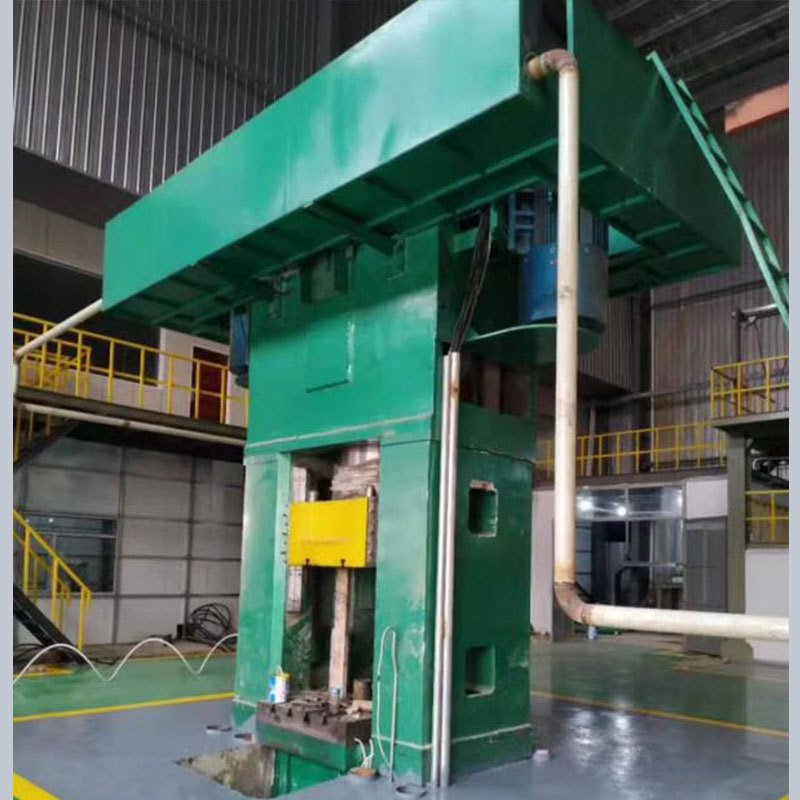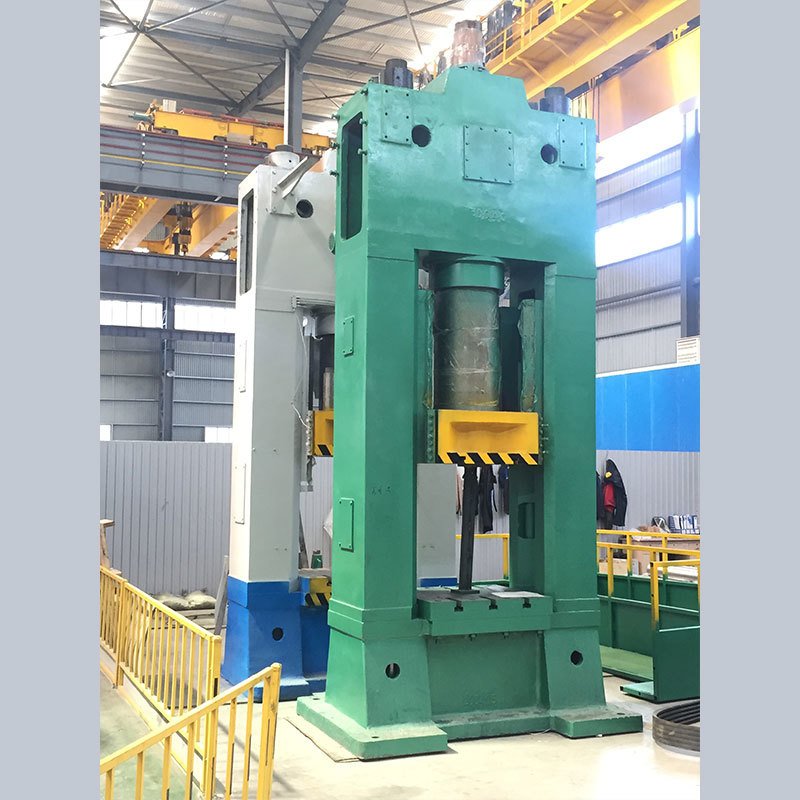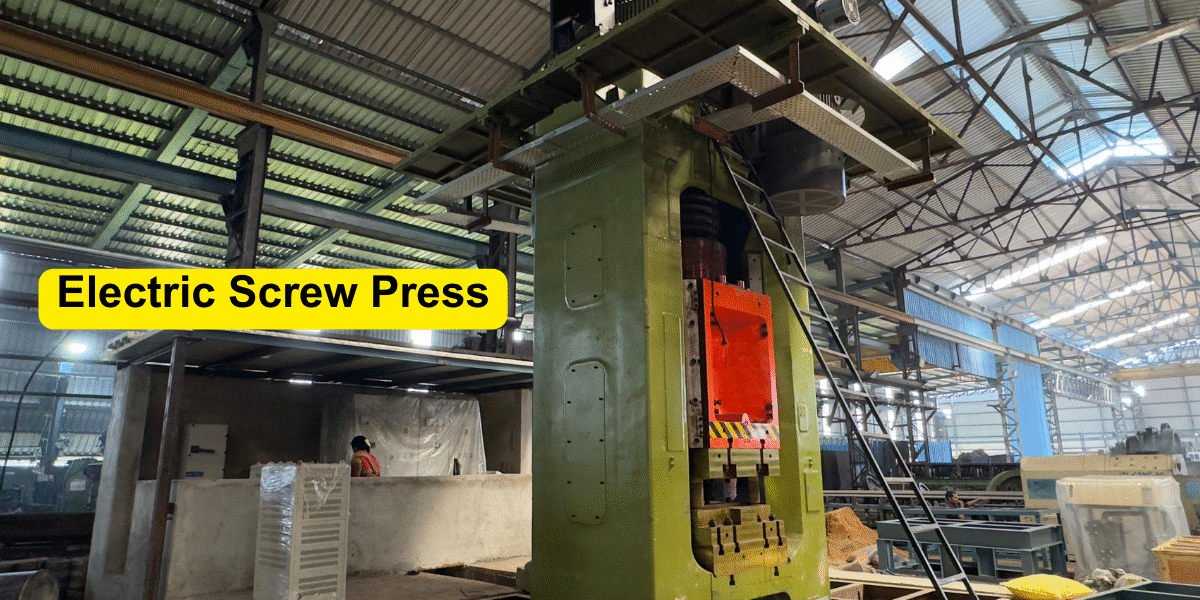Hammer vs Electric Screw Press: A Comprehensive Comparison for Modern Forging
In the forging industry, selecting the right press is crucial for achieving optimal production efficiency, material quality, and cost-effectiveness. Two primary types of forging equipment widely used are Hammers and Electric Screw Presses. While both serve the same fundamental purpose—shaping metal through compressive forces—they differ significantly in operation, precision, efficiency, and suitability for various materials. Understanding these differences is essential for manufacturers, engineers, and project planners aiming to optimize their forging operations.


Read More : India Best Electric Screw Press
1. Working Principle
Forging Hammer:
A forging hammer, often referred to as a drop hammer or pneumatic hammer, operates by lifting a heavy ram and dropping it onto the workpiece. The impact delivers a high instantaneous force, deforming the heated metal. The hammer can be mechanical, hydraulic, or pneumatic, and its operation involves repeated impacts to achieve the desired shape. The operator often controls the number of strokes and the force manually, requiring experience and skill for consistency.
Electric Screw Press:
The Electric Screw Press, sometimes called a Direct Drive or Servo Screw Press, converts rotational motion from an electric servo motor into precise linear motion using a lead screw mechanism. Unlike hammers, the press delivers a controlled, continuous force throughout the stroke. This allows for highly accurate shaping of metal with consistent tonnage, ensuring minimal material waste, uniform grain structure, and superior surface finish. The force can be dynamically adjusted, making it ideal for sensitive or difficult-to-forge alloys.
2. Precision and Control
Hammer:
Hammers provide high impact force but limited precision. The operator cannot precisely control the tonnage during each blow, which may result in minor variations in part dimensions, surface finish, or internal grain structure. While effective for rough forging, especially for large and simple shapes, hammers may not meet the tolerance requirements for high-tech components like aerospace or medical implants.
Electric Screw Press:
Electric Screw Presses offer unmatched precision in force and stroke control. Advanced servo systems ensure that the exact tonnage is applied at the right speed and position. This precision is especially beneficial for high-strength, exotic alloys like Titanium, Inconel, Duplex stainless steel, and aluminum alloys. Components requiring tight tolerances, superior grain alignment, and minimal flash are best forged using screw presses. Automated monitoring systems can track each stroke, ensuring consistency across batches.
3. Material Versatility
Hammer:
Hammers are suitable for a broad range of materials, including carbon steel, alloy steel, and simple aluminum components. However, high-strength or difficult-to-deform materials may require multiple reheatings and additional finishing due to the uncontrolled impact force, increasing cycle time and material handling.
Electric Screw Press:
Electric Screw Presses excel in forging challenging materials. Titanium, Inconel, Duplex, and high-strength aluminum alloys can be forged in a single pass with accurate tonnage control. The controlled force prevents micro-cracking, excessive grain elongation, and uneven deformation, which are common issues when using hammers for advanced alloys. This capability makes screw presses ideal for aerospace, defense, medical, and automotive applications requiring high-performance materials.
4. Energy Efficiency
Hammer:
Traditional forging hammers consume significant energy, particularly mechanical or pneumatic types. Energy is often lost during the rapid impact process, and repeated strokes may be required to achieve the desired shape. This increases electricity or compressed air consumption and overall operational cost.
Electric Screw Press:
Electric Screw Presses are far more energy-efficient. The servo motor drives the lead screw with minimal energy loss, and the continuous, controlled force ensures that only the required energy is used for each forging operation. Reduced energy consumption, combined with lower die wear and minimal scrap, leads to cost savings over the life of the press.
5. Die Life and Maintenance
Hammer:
The repeated impact forces generated by hammers subject dies to significant shock loading. This can lead to early die wear, cracking, or misalignment, especially when forging high-strength alloys. Regular maintenance is required, including die inspection, lubrication, and component replacement, increasing downtime and operational cost.
Electric Screw Press:
Electric Screw Presses apply a controlled, smooth force, reducing shock on the die. This extends die life and reduces maintenance frequency. The press also minimizes frictional wear and enables uniform deformation across the die cavity, further preserving tooling. For critical production lines, this translates into higher uptime and consistent product quality.
6. Automation and Modern Integration
Hammer:
Hammers can be automated to some extent using mechanical feeders and hydraulic systems, but full integration with modern Industry 4.0 systems is limited. Process monitoring, real-time adjustments, and predictive maintenance are more challenging.
Electric Screw Press:
Electric Screw Presses are designed for automation and integration with robotic handling, material feeders, and IoT-enabled monitoring. They can be programmed for different products, tonnage profiles, and forging cycles. Data from each stroke can be analyzed to optimize yield, reduce scrap, and predict maintenance needs, making them ideal for high-tech, large-scale forging operations.
7. Production Speed and Flexibility
Hammer:
Hammers excel in high-speed impact applications, particularly for large and simple components. However, multiple strokes may be required to complete forging, especially for complex geometries. Changing part specifications or materials may require adjusting stroke height, impact force, or die design manually.
Electric Screw Press:
Electric Screw Presses provide flexibility and repeatable cycle times. Although each stroke may be slower than a hammer impact, precision and material efficiency often offset the slight speed difference. Quick programming changes enable rapid switching between products or materials, enhancing production flexibility and reducing changeover time.
8. Safety Considerations
Hammer:
The high-impact nature of hammers poses safety risks to operators, including potential flying debris, loud noise, and vibrations. Proper shielding, PPE, and safety protocols are mandatory to reduce accidents.
Electric Screw Press:
Electric Screw Presses operate smoothly, with less vibration and noise. Modern safety interlocks, emergency stops, and guarded operations reduce operator risk. Integration with automated handling systems further minimizes human exposure to hot or moving components.
9. Cost Considerations
Hammer:
Initial investment in hammers is generally lower than for screw presses, making them attractive for small-scale or low-precision operations. However, higher maintenance costs, die wear, energy consumption, and scrap rates can increase total cost over time.
Electric Screw Press:
Electric Screw Presses have higher upfront costs but provide significant long-term savings through reduced energy consumption, longer die life, lower scrap, and improved yield. For high-precision, high-value components, the ROI is often faster due to superior efficiency and quality.
Last Word
While both hammers and electric screw presses have their place in forging, the choice depends on the application, material, and production requirements:
-
Hammers are suitable for rough forging, simple shapes, high-speed impact work, and low-cost setups.
-
Electric Screw Presses provide superior precision, consistent tonnage, energy efficiency, and versatility for advanced materials like Titanium, Inconel, Duplex, and aluminum alloys. They are ideal for high-tech industries requiring tight tolerances, minimal scrap, and extended die life.
At Adhvika Forge Tech, we specialize in evaluating client requirements and recommending the most suitable forging press. Our turnkey solutions integrate both hammers and electric screw presses with automation, die design, and process optimization to maximize productivity, efficiency, and profitability. Choosing the right forging equipment ensures high-quality components, reduced production cost, and a competitive advantage in the global market.
#ForgingTechnology #ElectricScrewPress #ForgingHammer #TitaniumForging #InconelForging #DuplexSteel #AluminumForging #AdhvikaForgeTech #PrecisionForging #TurnkeyForging #ForgingSolutions #IndustrialAutomation #MetalForming #ForgingComparison




